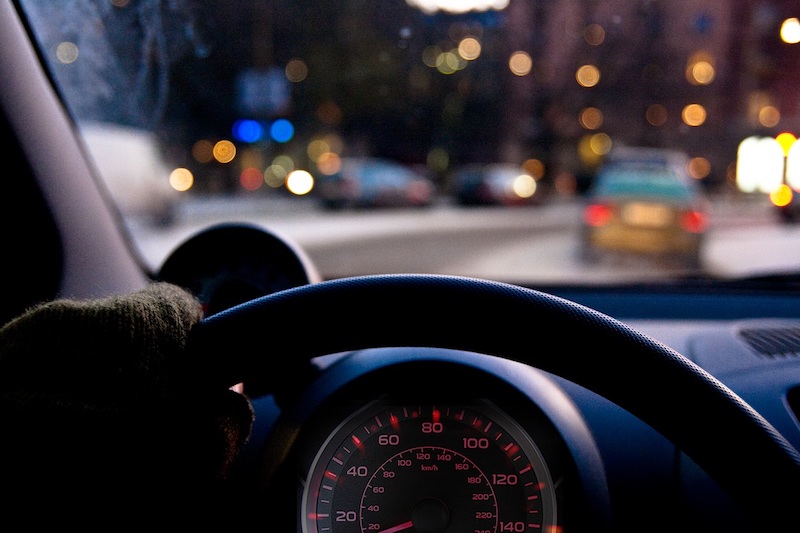The 4 million miles of public roads in the US make road trips one of the most popular escapes from the 9 to 5 lives. There is no denying that road trips are fun, but before you hit the road, make sure you have the necessary skills to avoid any unpleasant circumstances and your vehicle is up for the task.
Let’s see the three essential skills you need and the five steps of preparing a car for a road trip.
Skills A Designated Road Trip Driver Needs to Have
If you are planning a road trip, you already know how to drive a car, but a successful road trip needs more than that. Make sure you know these three things:
Jump-Starting the Car
Imagine this, you stop at the top of a hill and enjoy music from your car’s speakers all night long. Now it’s time to hit the road again, but the car won’t start because the sound system ate through the battery. Knowing how to use jumper cables can save the day. Just stop a car, jump-start your engine, and you’ll be good to go.
Changing a Wheel
Having a flat while on the way to the office is annoying, but if that happens on a deserted highway, the stakes are way higher. Before you leave for a road trip, watch a YouTube video, or ask a gearhead friend how to change a flat tire.
Replacing Blown Fuses
One of the most common problems a car can have while on a road trip is a blown fuse. Fortunately, fixing it is easier than you think, but only if you know how. Look up the owner’s manual to find out where the fuse box is and practice replacing a fuse so that you won’t have to call repair guys while stranded 100 miles from the nearest city just to replace a blown fuse.
That was the preparation at your end, now let’s see how to prepare the car for the journey so that everything goes smooth.
Preparing your Car for a Road Trip
Check the Car
This is something you should routinely do at least once a week so that you can catch any issue with the car in its early stages. When going on a road trip, you need to conduct an even thorough inspection, which should include:
- The fluids, including the engine oil, coolant, windshield washer fluid, transmission oil, and brake oil.
- Windshield wipers, making sure they are working fine.
- Brakes, for any unusual noise or lack of efficiency.
- Tires, including the spare wheel. Make sure all of them have the required air pressure in them.
- All the lights, including the headlamps, blinkers, taillights, and dome light.
If anything appears out of order, consult a mechanic before embarking on the journey.
Clean the Car
On a road trip, the majority of your time will be spent in the car, so it better be clean. If you like to do it yourself, well and good, otherwise add the $10 you pay the service station to the cost of a trip and your whole experience of the road trip will get a whole lot better.
Cleaning the car goes beyond getting rid of the junk inside it. Free it of any unnecessary luggage that might be there; it will improve the car’s fuel efficiency.
Fuel Up the Car
The last thing you want on a road trip is running out of gas, so it is a good idea to fill up the tank before you leave. This is particularly important when you are going to travel on a road you are not familiar with. You do not know where the next filling station will be, so better not take any chances and have a full tank of fuel before you leave.
While on the way, do not wait for the tank to dry up before you fill it up. Preferably get it filled as soon as it goes below the half mark to be on the safer side.
Keep Essential Tools in the Trunk
This also applies to daily driving but is even more important when you are on a road trip where you expect to be far from populated areas. The tools that you should keep in the vehicle include:
- Wheel-changing tools.
- Puncture repair kit and an air compressor if your car does not have a spare wheel.
- Jumper cables or a jump start kit.
- A power bank for charging your devices.
- Early warning devices like flares or reflective triangles.
- Duct tape for quick repairs or fixes.
Keep an Emergency Kit
Lastly, keep an emergency kit in your car for unforeseen circumstances. Road trips might take you far from populated areas where you might even not have cellular phone services. The contents of this kit will depend on the type of road trip you are going on, but some general items include:
- A first-aid kit.
- A multipurpose utility tool, like a Swiss Army Knife.
- Drinking water.
- A strong flashlight with some extra batteries.
- A compass.
- A road map of the area you are going to.
- A satellite phone if you are expected to be out of cellular coverage.
Conclusion
Road trips are a fun and inexpensive getaway, but not preparing for them can make the experience unpleasant. You need to have some basic skills related to cars, including how to jump-start, change a flat tire, and replace blown fuses to get yourself out of sticky situations. Next, prepare the car properly before the trip, this includes thoroughly checking it to make sure all fluids are topped up, and all systems are working correctly and fueling and cleaning the vehicle up beforehand. Do also keep some essential tools in the trunk; you never know when you might need them and have an emergency kit at hand to deal with emergencies during the trip.

